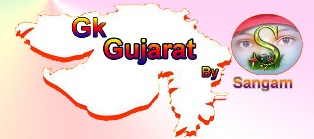GUJARATI Textbook – (Second Language) STD 9,10,11,12
Reading is
1. a skill which enables us to get a message;
2. recognizing the written words (written symbols);
3. getting (understanding) the meaning;
4. used to teach pronunciation;
5. grasping information from texts.
Reading Reading is a complex activity that involves both
perception and thought. Reading consists of two related processes: word
recognition and comprehension. Word recognition refers to the process of
perceiving how written symbols correspond to one’s spoken language.
Comprehension is the process of making sense of words, sentences and connected
text.
Readers typically make use of background knowledge,
vocabulary, grammatical knowledge, experience with text and other strategies to
help them understand written text.
There are the following types of reading and the
corresponding types of activities to develop the corresponding reading skills:
1. Skimming reading is reading to confirm expectations;
reading for communicative tasks.
2. General reading or scanning is reading to extract specific
information; reading for general understanding.
3. Close reading or searching reading is reading for complete
understanding; reading for detailed comprehension (information; function and
discourse).
Skimming is the most rudimentary type of reading. Its object is to
familiarize you as quickly as possible with the material to be read.
Scanning is a skill that requires that you read quickly while looking
for specific information. To scan a reading text, you should start at the top
of the page and then move your eyes quickly toward the bottom. Generally,
scanning is a technique that is helpful when you are looking for the answer to
a known question.
Close reading is the most important skill you need for any form of literary
studies. It means paying especially close attention to what is printed on the
page. Close reading means not only reading and understanding the meanings of
the individual printed words, but also involves making yourself sensitive to
all the nuances and connotations of language as it is used by skilled writers.
Exercises aimed to teach receptive skills required for
detailed reading comprehension can be divided into several groups depending on
the purpose you want to achieve.
The first group of exercises works to familiarize the
students with the topic, develop guessing skills and create expectations and
interest in the text they are going to read. Pre-reading activities allow the
reader to make predictions about text that will be read by eliminating
possibilities that are unlikely. They are a way to prepare a reader prior to a
reading assignment by asking them to react to a series of statements,
questions, or words related to the content the material.
GUJARATI Textbook – (Second Language) ENGLISH MEDIUM STD 11 Click Here
GUJARATI Textbook – (Second Language) ENGLISH MEDIUM STD 12 Click Here
GUJARATI Textbook – (Second Language) ENGLISH MEDIUM STD 10 Click Here
GUJARATI Textbook –(Second Language) ENGLISH MEDIUM STD 09 Click Here









No comments:
Post a Comment
Thank you For Comment....